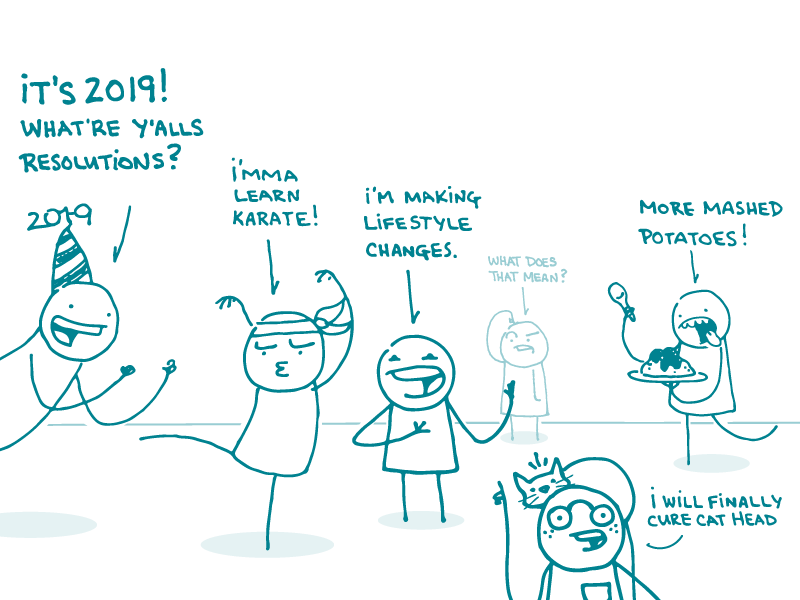
Everyone has a vague sense of what the phrase “lifestyle changes” means. You know: eating better, exercising, and… uh… other healthy stuff.
But when you’re trying to communicate health recommendations, giving readers a vague sense of your message isn’t good enough. People need actionable information to help them improve their lives, not fuzzy advice to “do healthy things.”
Here’s a telltale sign that a term isn’t clear enough to be useful: it could mean the opposite of what you’re trying to convey. After all, wouldn’t “sit on the couch more” and “drink trans fat smoothies” count as lifestyle changes?
Something else to consider: “lifestyle changes” isn’t something people actually say. No human has ever written, “Make lifestyle changes” on a New Year’s resolution list. What they actually write is something specific. Eat less sugar. Start yoga classes. Quit smoking.
That’s why, dear readers, instead of talking about “lifestyle changes,” it’s important to be specific. According to the research, which particular behavior changes will help? Who will they help? How much? If you say exactly what you mean, you’ll do your audience a big favor.
The bottom line: People tune out vague phrases like “make lifestyle changes.” Change your tune and get specific instead.
Tweet about it: Why “lifestyle changes” can be the wrong choice — at least in health writing: https://bit.ly/2VsYb0w via @CommunicateHlth #HealthLit
Browse recent posts